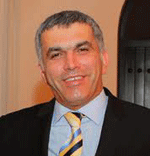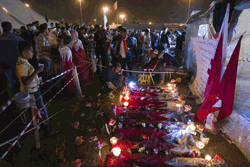Bahrain
Popular demands related to UN Agenda 2030 in view of Covid 19
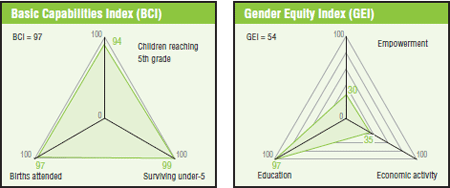
Published on Fri, 2017-05-12 15:43
“Informal labor is not a marginal issue in Arab countries. It is a core component of modern Arab economies and the distribution of work therein and is doomed to expand under current policies,” explained Samir Aita, lead researcher of the Arab NGO Network on Development (ANND) at the launch of the 2017 edition of the Arab Watch on Economic and Social Rights, last May 8 in Beirut.
The report, launched publicly at the American University, concludes that the “highest percentages of lack of formality are in countries with the least strict laws and bureaucracies, and vice versa. This goes against the stereotype that says that informality is a result of strict laws and bureaucracies.” It also concludes that “informal labor in Arab countries is mostly waged labor, except in rare cases, which contradicts another idea that says that informal labor is a choice, as young people entering the job market have no choice but to find any type of livelihood, no matter how fragile or temporary.”
|
Published on Thu, 2014-10-09 18:56
Nabeel Rajab, the President of the Bahrain Center for Human Rights (BCHR), Director of the Gulf Center for Human Rights (GCHR) and Deputy Secretary General of the International Federation for Human Rights (FIDH), was summoned on 1 October 2014 to attend an investigation at the Criminal Investigation Directorate, specifically the General Directorate of Anti-corruption and Economic and Electronic Security. The investigation session lasted about 45 minutes and focused on two tweets that the authorities claim have offended the Ministry of Interior.
More than 100 organisations call for the immediate, unconditional release of detained human rights defender Nabeel Rajab, arrested on 1 October 2014 in Bahrain.
|
Published on Wed, 2014-09-17 22:08
Human rights defender Ms Maryam Al-Khawaja will face trial on 1 October 2014 before the High Criminal Court for allegedly "assaulting a police officer".
Maryam Al-Khawaja, is the acting president of the Bahrain Centre for Human Rights (BCHR) and the co-director of the Gulf Centre for Human Rights (GCHR).
|
Published on Thu, 2014-05-15 09:21

Gustave Assah.
|
The participants in the civil society strategy meeting on monitoring and accountability organized by Social Watch last february in Montevideo were asked about how they personally work and relate with the huge task of making the powerful accountable. Here is what they said:
|
Published on Mon, 2013-09-30 20:22
Human rights organizations are deeply concerned about the unfair sentences which are likely to be given to 50 Bahraini political and rights activists who have been on trial since July 11 in what is known as the case of the February 14 youth. The activists have been charged with forming an illegal coalition, which the authorities hold responsible for the violence seen in the country during the crackdown on the popular democratic uprising in February 2011. The court has already adjourned for sentencing, even though the trial did not meet minimum standards of fairness and impartiality. Seeing the process as a show trial for the issuance of predetermined sentences, the defendants and their lawyers decided to boycott the trial session scheduled for today, September 29.
|
Published on Tue, 2013-08-06 00:00
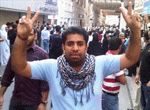
Photo: Bahrain Center for
Human Rights
|
In the past few weeks, the human rights situation in Bahrain has rapidly deteriorated ahead of planned mass protests on August 14th. With many of the country’s most prominent Human Rights Defenders behind bars, local NGOs have inadequate resources to keep up with the unfolding situation, and it is challenging for them to ensure the safety of their members.
Bahraini HRDs should not be left to stand alone. We urge international human rights organizations to attempt to visit Bahrain over the coming week, in order to document and monitor ongoing protests, especially on August 14 when Bahrain is expected to come under lockdown. The government has already declared that all protests in the capital Manama are banned.
|
Published on Tue, 2013-06-25 00:00

Mohammed Al-Maskati.
(Photo: BCHR)
|
The Gulf Center for Human Rights (GCHR) and Bahrain Center for Human Rights (BCHR) express their serious concern over ongoing campaign of judicial harassments against human rights defenders in Bahrain, that includes the very recent trial of defender Mohamed Al-Maskati on freedom of assembly related charges.
|
Published on Thu, 2013-04-25 15:15
.gif)
Protesting in the streets.
(Photo: Ahlulbayt News Agency)
|
In 2012, the authorities in Bahrain showed little if any readiness to engage with the political opposition and civil society in order to find a fair and sustainable solution to socio-political and socio-economic challenges facing the nation. If anything, officials intensified their repression of the democratic wishes expressed by a sizable number of people in February 2011.
Sadly, by shunning repeated calls for face to face roundtable negotiations, officials have only succeeded in harming the country's potential, reputation and ranking in international economic, political and social development indices. This report focuses on the costs to the country's performance on various indicators as well as to the likelihood of achieving the Millennium Development Goals (MDGs) by 2015.
|
Published on Wed, 2012-11-21 13:39

Professor Cherif Bassiouni,
chairperson of the BICI, handed
the report to the Bahraini regime
a year ago. (Photo: BNA)
|
“Bahrain stands still with its record of grave human rights violations” in spite of the warnings issued almost 365 days ago by the Bahrain Independent Commission of Inquiry (BICI) appointed by the regime itself, stated twelve national, regional and global civil society organizations and networks, among them the Bahrain Human Rights Society (BHRS), Social Watch, the Arab NGO Network for Development (ANND) and the Egyptian Association for the Enhancement of Civic Participation (EACPE).
|
Published on Thu, 2012-11-15 14:40
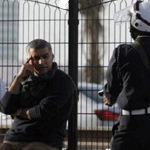
Nabeel Rajab (Photo: BCHR)
|
The Observatory for the Protection of Human Rights Defenders, a joint programme of the International Federation for Human Rights (FIDH) and the World Organisation Against Torture (OMCT), deplored the Bahrain Appeals Court’s refusal to refer a petition for preliminary ruling on the legality of the law prohibiting demonstrations in Bahrain and to release Nabeel Rajab, who has been arbitrarily detained since July 9.
|
Published on Thu, 2012-11-08 13:13

Photo: Bahrain Center for
Human Rights
|
The Bahrain Human Rights Society (BHRS) called on the regime to “repair the tense political situation” created when it imposed a ban on public demonstrations and gatherings. “Day after another the Bahraini authorities prove their avoidance from the obligations placed on them following the ratification of the international covenants on human rights,” warned the organization in a statement.
|
Published on Mon, 2012-09-24 08:39

Nabeel Rajab. (Photo: Avaaz)
|
The regime of Bahrain accepted completely 145 recommendations and 13 partially out of the 176 submitted by other States to the UN Human Rights Council last May, as a result of the sustained efforts made by local and international civil society organizations at the session of the organ that is taking place in Geneva. But the Bahraini Human Rights Observatory warned that implementing the suggestions will require “international monitoring”.
|
Published on Wed, 2012-08-29 08:48

Nabeel Rajab. (Photo: Avaaz)
|
A petition was launched at the Avaaz web site to call on the United States, the United Kingdom and the United Nations to demand the dropping of all the politically motivated charges against activist Nabeel Rajab and his immediate release from prison in Bahrain.
|
Published on Wed, 2012-08-22 08:47

Arrest of Nabeel Rajab and
other activists on February.
(Photo: BCHR)
|
Nabeel Rajab, President of the Bahrain Center for Human Rights (BCHR, focal point of Social Watch) and Deputy Secretary General of the International Federation for Human Rights (FIDH), was sentenced last week by the Bahraini Lower Criminal Court to three years imprisonment for "involvement in illegal practices and inciting gatherings and calling for unauthorized marches through social networking sites”, for his "participation in an illegal assembly" and for his “participation in an illegal gathering and calling for a march without prior notification”.
|
Published on Thu, 2012-05-10 14:03
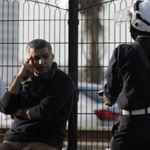
Arrest of Nabeel Rajab and other
activists on February.
(Photo: BCHR)
|
The International Federation for Human Rights (FIDH) stated this week its grave concern about the arrest of its deputy secretary general, Nabeel Rajab, and the continuing targeting of activists in Bahrain. On May 5th, Rajab, president of the Bahrain Center for Human Rights (BCHR), was arrested after arriving at Manama airport from Lebanon and is currently detained in Al Hawra police station.
|
Published on Thu, 2012-05-03 09:57
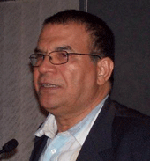
Abdullah Al-Deerezi.
|
Human rights activists welcomed this week a decision by Bahrain's highest court to order a retrial in the case of 21 men accused of “trying to overthrow the monarchy” and “having links to a foreign terrorist organization”.
|
Published on Thu, 2012-03-15 11:37
In terms of gender equity Bahrain is above the Middle East and North African average, and far over its neighbour Saudi Arabia, although in worst situation than its other neighbour Qatar.
|
Published on Wed, 2012-01-11 21:16
The Observatory for the Protection of Human Rights Defenders, a joint programme of the International Federation for Human Rights (FIDH) and the World Organisation Against Torture, called on Bahraini authorities to guarantee the right to freedom of peaceful assembly and the safety of demonstrators, including that of human rights defenders, following the repression by security forces yesterday of a peaceful demonstration to call for the release of political prisoners.
|
Published on Mon, 2011-10-24 17:22
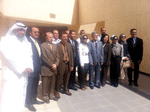
Gulf Daily News.
|
The Supreme Criminal Appeals Court of Bahrain dropped on Sunday several charges against 20 doctors accused of serious offences related to the political unrest occurred in February. “This is a positive step and it is good for the justice system,” said Bahrain Human Rights Society secretary-general Dr Abdullah Al Deerazi, reported Gulf Daily News.
|
Published on Mon, 2011-10-03 08:33

The Public Prosecution studies
the appeals. (Foto: BNA)
|
Abdullah Al-Derazi, secretary general of the Bahrain Human Rights Society (BHRS, focal point of Social Watch), said he hoped the 20 doctors, nurses and paramedics condemned to 5, 10 and 15 years imprisonment on Thursday by a military court would have their sentences reduced on appeal before being pardoned.
|
Published on Fri, 2011-09-09 10:04
.gif)
Bahraini doctors protesting in
the streets.
(Photo: Ahlulbayt News Agency)
|
Sources: Daily Tribune, Al Jazeera, Radio France International, The Washington Post
Bahraini and international human rights’ organization efforts made progress this week when a special court freed on bail 20 doctors jailed because of political reasons, some of which had gone on hunger strikes, with more than 100 other prisoners. The situation of the fasters “is a matter of concern as it involves the lives of people,” said Bahrain Human Rights Society (BHRS, focal point of Social Watch) Secretary General Dr Abdulla Al Durazi.
|
Published on Wed, 2011-08-17 07:50
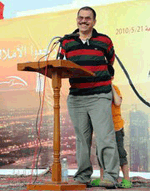
Abdullah Alderazi
|
Source: Solidarity Center
The University of Bahrain dismissed last week for political reasons 19 professors who had had been suspended in April, amongst them Abdullah Alderazi, secretary general of the Bahrain Human Rights Society (BHRS, national focal point of Social Watch).
|
Published on Thu, 2011-06-23 07:32

View of the National Safety Court,
according to the governmental
Bahrain News Agency.
|
Sources: Bahrain Center for Human Rights, International Federation for Human Rights.
The National Security Court of Bahrain sentenced this Wednesday to life imprisonment 8 of the 21 activists charged of being linked to supposed “terrorist activities”. The 13 others were sentenced to two to fifteen years’ imprisonment, reported several national, regional and international civil society organisations.
|
Published on Wed, 2011-05-25 06:07
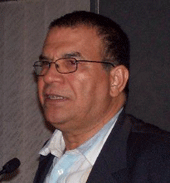
Abdullah al-Durazi, head of BHRS.
(Photo: Habib Toumi's blog)
|
Sources: Financial Times, Human Rights Watch, Bahrain News Agency, UPI, Gulf News, Tehran Times.
Bahraini government questioned Abdullah al-Durazi, who was heading the Bahrain Human Rights Society (BHRS), the oldest body tracking human rights abuses, when its board was disbanded last year. The authorities accused Al-Durazi of taking part in protests and disseminating false information, though no formal charges have been filed yet, reported the Financial Times on Thuesday.
|
Published on Wed, 2011-05-04 11:30

Bahraini Ministers reporting
to the press. (Photo: BNA)
|
The Bahraini Military Public Prosecution is accusing 24 doctors and 23 nurses, paramedics and administrators who attended victims of the security forces “for their involvement in the recent deplorable unrest”, said the Justice, Islamic Affairs and Endowment Minister, Shaikh Khalid bin Ali Al-Khalifa, on Tuesday.
|
|
Published on Mon, 2011-03-21 07:21
|
Published on Wed, 2011-03-16 07:53
The United Nations, the Arab League and the international community in general must intervene to stop the massacre that Bahrain demonstrators and activist are currently suffering, warned this Wednesday the local civil society organizations. The Bahraini opposition considers the Saudi and Emirates military contingents as occupation forces. Eurostep, the Arab NGO Network for Development (ANND) and Social Watch asked the UN secretary-general, Ban Ki-moon, and the High Representative of the EU for Foreign Affairs, Catherine Ashton, to call Bahraini authorities for an immediate end to the violence.
|
|


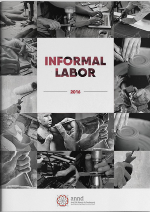
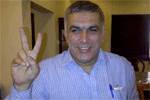


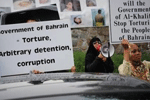


.gif)





